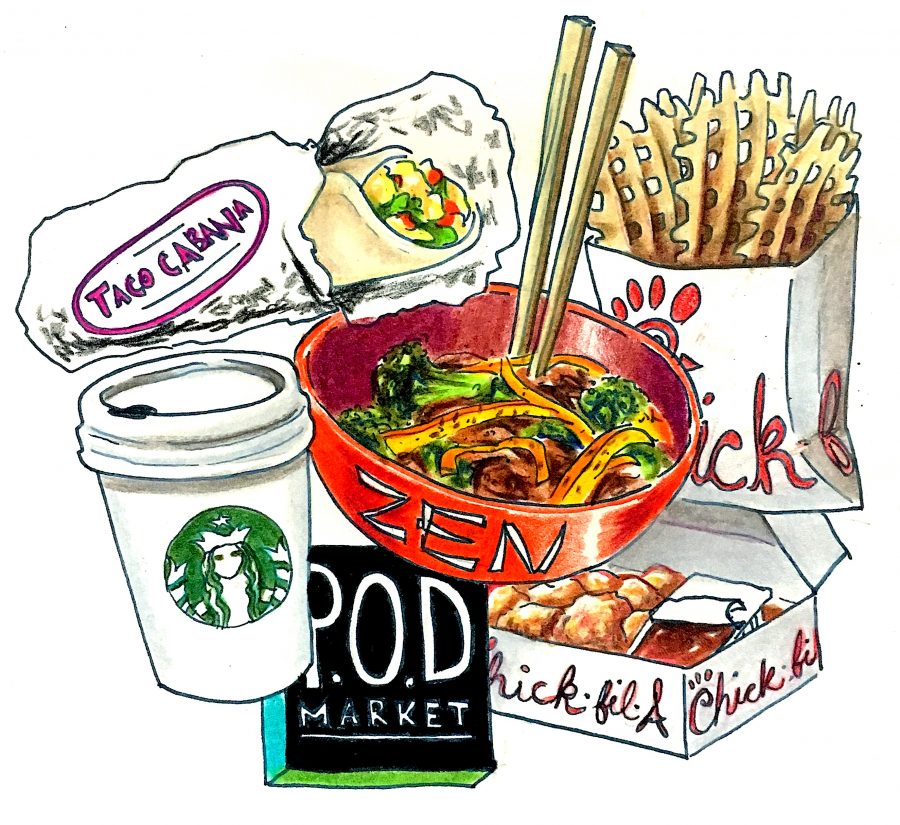Food has evolved tremendously beyond being mere nutrients necessary to sustain life to becoming a ritual. It is pivotal to one’s cultural identity and helps retain connections to family traditions. What we choose to eat and how we prepare food communicates our beliefs, culture and experiences.
However, when students — especially freshmen — come to UT, they typically lose access to their cultural cuisine. Many Longhorns come from diverse cultural heritages, hailing from vibrant nations that each hold their own unique cuisine. A vast majority of on-campus food options through the Dine-in-Dollars plan are fusion dishes and fast-food, which lack cultural authenticity in both their making and flavors. The University must do more to provide authentic food and flavors that students want.
Jeffrey Wang, a business and computer science freshman, hails from a Chinese background and is accustomed to the traditional Chinese meals his mother makes at home.
“I definitely miss Chinese food,” Wang said. “I miss it because there aren’t really any authentic Chinese restaurants on campus, and I can’t go to Chinatown now.”
Students with deep-rooted cuisine traditions, such as Wang, lack regular access to authentic food. It seems counterintuitive to almost exclusively serve unauthentic big-chain cuisine and standard-variety meals.
Furthermore, because of limited dorm fridge space and minimal kitchen space, many students living on campus can’t find time to cook their own meals. This shift from everyday home-cooked meals to an inundation of standard-line food and repetitive flavors can be disorienting.
However, University Housing and Dining has made efforts to include diverse food on campus. Rene Rodriguez, the Director of Dining for UT, explains how University Housing and Dining incorporates authenticity in their meals.
“We have 15 culinary-trained chefs on staff … with lots of diverse backgrounds,” Rodriguez said. Additionally, he said Jester City Limits serves Asian cuisine — including Thai, Indian and Filipino — every Wednesday. He also said Jester hosts an annual cultural dinner event.
Outside of dining halls, student organizations primarily sponsor the on-campus food tents and authentic cuisine vendors. According to Rodriguez, these events are outside University Dining jurisdiction.
Acquiring authorization and writing up contracts with outside vendors takes time. The University should acknowledge that students want more diverse food options and take action now. Expediting and encouraging the inclusion of authentic food is a necessary step to have a culturally diverse and accepting campus. In addition, student cultural organizations need to connect more with University Housing & Dining to vocalize student interests.
Serving authentic cuisine is a tremendous step toward a culturally-connected campus. It’s time to bring the flavors of home to campus, regardless of cultural background.
Mathavan is a business honors freshman from McAllen.





















